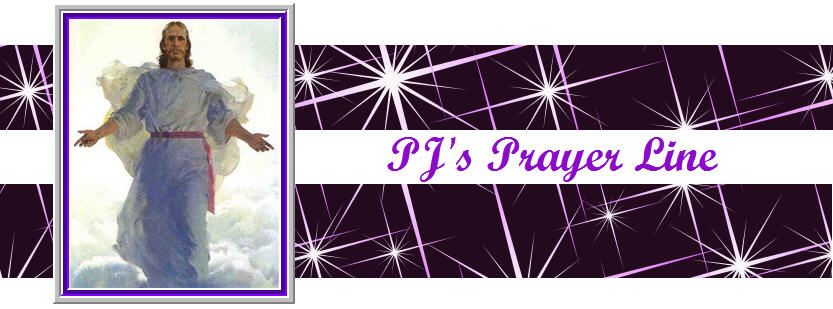Good Afternoon to All!
I am so excited! I finally received the new Bible which I ordered! It is the Word Aflame Apostolic Study Bible! I can't wait to dive in. I have had several people in the past approach me and ask me the difference in my faith than others. I could tell them, but it was always hard for me to explain without sounding like I was trying to convert them. Not that I was. That was not my intentional at all. I tend to get excited about my faith as I talk about it because I love God so much and want everyone to feel His love the way I do.
Needless to say, sometimes I come across too zealous.
This Bible will help me to be able to explain it in a better way.
To begin with, I am a Christian, an Apostolic Oneness Pentecostal. The distinctions between my faith and other Christian faiths are as follows:
Apostolic Distinctives
Conservative Christians generally reject the allegorical method in favor of the grammatical-historical. Yet many do not accept key Apostolic Pentecostal beliefs such as the oneness of God, the new birth according to Acts 2:38, and some practical applications of holiness. To a great extent, these distinctives stem from specific principles of interpretation unique to Apostolics or that Apostolics emphasize more than other groups do. We briefly identify six such principles and explain how they come from the Bible itself. The Bible tells us to "come out from among them, (the world) and be ye separate" (2 Corinthians 6:17).
- Apostolic Authority. Apostolics regard the preaching, teaching, experience, and practice of the apostles as normative and authoritative. Jesus commissioned the apostles to establish the church, proclaim the gospel, and teach His commandments. The early believers continued steadfastly in the apostles' doctrine. For most groups today, the message and experience of the apostles is only the starting point for theological discussion, but for Apostolics it is the ending point. For this reason, Apostolics emphasize that baptism in Jesus' name and the baptism of the Holy Spirit with the initial sign of tongues are commands for the church today.
- Old Testament Foundation and New Testament Fulfillment. The Old Testament is the foundation for the New. God revealed truth to the apostolic church by using the law as a tutor to lead people to Christ. Instead of reading the New Testament through the lenses of church tradition and creeds, we read it with the concepts and definitions of the Old Testament in mind. Thus, when we read in the New Testament that Jesus is God manifested in the flesh, (1 Timothy 3:16) we understand Him to be the revelation of the one true God of the Old Testament. We should not change the definition of God to allow a plurality of persons.
 Centrality of the One God in Jesus Christ. Jesus is the fullness of the Godhead incarnate and the supreme revelation of God to us. His atoning death, burial, and resurrection are the focal point of human history. Therefore, we interpret the whole of Scripture in light of the revelation of the one God in Jesus Christ.
Centrality of the One God in Jesus Christ. Jesus is the fullness of the Godhead incarnate and the supreme revelation of God to us. His atoning death, burial, and resurrection are the focal point of human history. Therefore, we interpret the whole of Scripture in light of the revelation of the one God in Jesus Christ.
- Importance of Spiritual illumination and Spiritual Experience. The carnal mind cannot understand the things of God, for they must be discerned spiritually. While the grammatical-historical method can help anyone understand the basic teaching of Scripture, in order to appreciate its true significance and make proper application to our lives, we need the illumination of the Holy Spirit. Moreover, in order to have a good understanding of the supernatural, such as the gifts of the Spirit. Experience does not become our authority for doctrine, but it helps us to understand and apply the Word of God to our lives. It becomes part of the hermeneutical Spiral ( or philosophy) of Scripture and methodology of explanation.
- Interpretation in Light of the End Time. Jesus taught that it is important to discern the time in which we are living. We interpret Scripture with the realization that we live under the new covenant, in the time of the great latter-day outpouring of the Holy Spirit, in the last age before the coming of the Lord. We apply Scripture in light of the urgency of His coming. Yes, He tells us no man knows the day nor the hour, but we are suppose to watch the signs and be ready for Him at any time.
- Presumption of Relevance and Applicability. All Scripture is given for our admonition. While culture has changed from Bible days, we still must follow the principles of the Bible. In every area of our lives, from adornment and dress to sexual morality and marriage, we must obey the practical instructions of the New Testament of the church.
We differ in other ways as well. The Bible tells us to “Come into His gates with Thanksgiving and into His courts with praise”. We begin all of our services with praise and worship. He inhabits the praise of His people. His Word tells us to “shout to the Lord, to lift up Holy hands (hands that are set apart for lifting and worshiping Him at that specific time), sing to the Lord, dancing before the Lord, leaping for joy, and other ways of giving Him all of the glory and praise.
 We take the Holiness standards seriously. Our dress code is modesty. We are not flashy. According to the Bible we are to be “plain-faced and sober”. Meaning very little or no make up, as well as we are to be serious about our relationship with Him (sober faced). We are not be adorned in gold and silver (only wearing the necessary jewelry, such as wedding rings and watches, but not to excess. In other words, we are to make sure that God is able to shine through us without competing with all the “other stuff”. ( This is my wording, not the Bible's). It's just that the way I see it, God made us to look the way He wanted us to look. When we start “loading on the make-up, the immodest clothing and all the earrings, bracelets, necklaces and rings, it takes away from what He created. People see all of this stuff, rather than what is inside of us waiting to come out. Now with all of this being said, when someone comes into our church, we don't tell them how to dress or do their hair or such. We allow them to make their own choices and allow God to do the work. We do have women in our church that wear pants and make up, as well as jewelry. That is what is so great about my church. My Pastor believes in "doing his job" which is to lead us, but at the same time allowing God to make the changes He chooses to in His own time. I have been in another church before where it was not that way.
We take the Holiness standards seriously. Our dress code is modesty. We are not flashy. According to the Bible we are to be “plain-faced and sober”. Meaning very little or no make up, as well as we are to be serious about our relationship with Him (sober faced). We are not be adorned in gold and silver (only wearing the necessary jewelry, such as wedding rings and watches, but not to excess. In other words, we are to make sure that God is able to shine through us without competing with all the “other stuff”. ( This is my wording, not the Bible's). It's just that the way I see it, God made us to look the way He wanted us to look. When we start “loading on the make-up, the immodest clothing and all the earrings, bracelets, necklaces and rings, it takes away from what He created. People see all of this stuff, rather than what is inside of us waiting to come out. Now with all of this being said, when someone comes into our church, we don't tell them how to dress or do their hair or such. We allow them to make their own choices and allow God to do the work. We do have women in our church that wear pants and make up, as well as jewelry. That is what is so great about my church. My Pastor believes in "doing his job" which is to lead us, but at the same time allowing God to make the changes He chooses to in His own time. I have been in another church before where it was not that way. Therefore I say, we have a phenomenal Pastor. He leads by example, and lets God work.
Another way in which we are different is, we baptize in "the name of Jesus" rather than the titles of Father, Son and Holy Ghost. The original plan of Salvation is Acts 2:38 in which Peter told the people when they asked him what they must do to be saved, "Repent and be baptized every one of you in the Name of Jesus Christ our Lord for the remission of sins, and ye shall receive the gift of the Holy Ghost. (39) For the promise is unto you, and to your children, and to all that are afar off, even as many as the Lord our God shall call. We believe that these are the "prerequisites of being saved, but being saved is a LIFETIME Journey. It entails living for God and having a relationship with Him, not just mouthing a few words and going about our daily lives as before.
This was just a slight taste of what my faith is about. Of course there is much more to it, but if I were to try and tell you everything, it would be more of a book than a post. I have to say there are few things that I am passionate about, but this is one of them. I hope this was interesting to you.
I know this is a bit different than what my posts have been in the past, but I started reading my new Bible today and these thoughts just came flooding in.
I will hopefully be getting back into the swing of blogging once again and into my normal pattern and style.
I will hopefully be getting back into the swing of blogging once again and into my normal pattern and style.
Good night and May God Bless!


















No comments:
Post a Comment